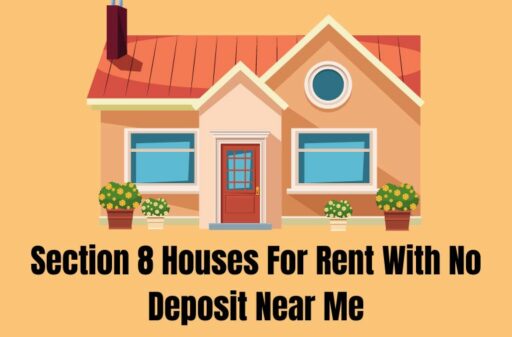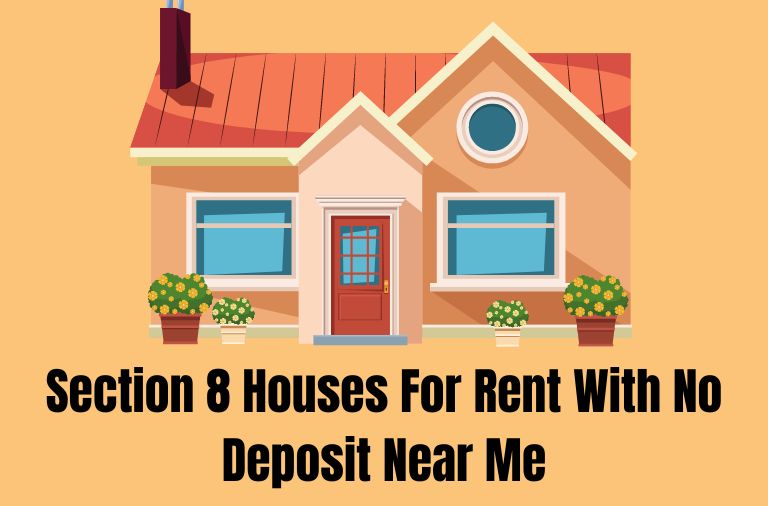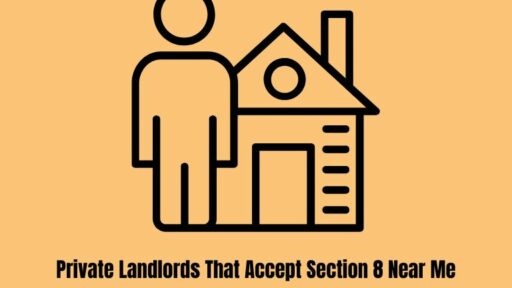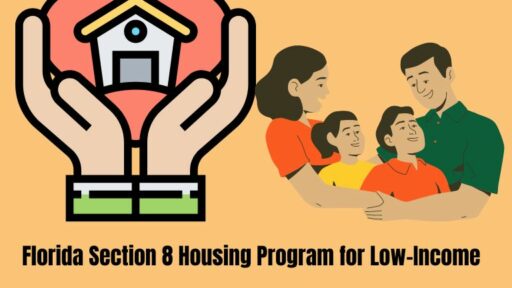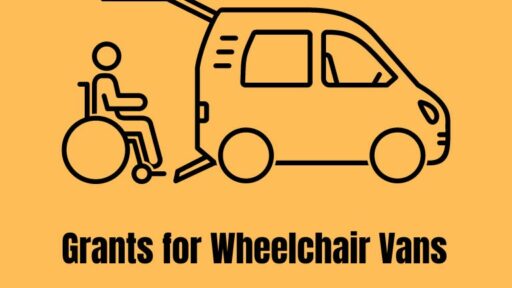Are you looking for Section 8 Houses For Rent With No Deposit? If Yes, Then You are at the right place.
Many low-income families turn to housing vouchers to cover the cost of rent. Approximately 5 million households receive federal rental assistance through the Department of Housing and Urban Development’s Section 8 program, with 70 percent of these households being older, disabled, or children.
Many renters still do not know where to look for private landlords who accept housing vouchers. Here are some tips and an overview of who is eligible to receive housing vouchers.
What is Section 8, and How Does It Work?
Housing Choice Vouchers, also known as Section 8 vouchers, are government-funded rent assistance programs same as Low-Income Senior Housing Assistance Programs. Over 5 million households across the country used vouchers to help pay some or all of their rent in 2018.
As part of the 1974 Housing and Community Development Act, Congress aimed to make sure low-wage earners could live in “decent housing and a suitable living environment” outside public housing.
People who meet income requirements can now apply for vouchers when they become available through the program. If they are approved, selected, and find an apartment or house with the voucher, their local housing authority starts sending payments directly to landlords.
In some cases, the voucher holder will receive payments that cover their rent in full or in part. Rent typically accounts for between 30% and 40% of a household’s income.
Two Types of Section 8 Houses for Rent with No Deposit Near Me
How does Section 8 investing work? To understand Section 8 housing assistance, it’s important to understand its two main variations.
Voucher-based assistance is provided through the Housing Choice Voucher Program, and project-based assistance is provided through the Project-Based Voucher Program. Tenants with voucher-based assistance have the option of choosing where to live, while tenants with project-based assistance are assigned to a particular unit or building. Project-based tenants cannot move to another building with their rental assistance if they move to another building.
Does Section 8 Pay the Security Deposit?
For Section 8 to be effective, a tenant must pay a security deposit, a broker fee, and an upfront rent. Consequently, program applicants are responsible for paying the security deposit if the landlord or management company leases the apartment. The good news is that some landlords who accept Section 8 do not require deposits because they know the program will not cover them. This arrangement is only suitable for some landlords, so you will have to research to find one willing to accept it.
How to Find Section 8 Houses for Rent with No Deposit Near Me?
The first step in finding Section 8 housing units without a security deposit is to investigate neighborhood housing authorities. As local organizations, they know how Section 8 works in the area and can provide valuable insights about housing stock, rental guidelines, and initiatives to exempt deposits.
- You can obtain useful information and potential leads by contacting local housing authorities and communicating your goal of finding rental properties with very little upfront expense.
- Online rental platforms have become powerful tools for finding housing, regardless of whether you need Section 8 housing. Renters looking for Section 8 housing can find it on websites like GoSection8.com, which connect them with landlords offering eligible leases.
- These platforms often offer search filters that allow users to specify preferences, such as the absence of a security deposit.
- Participating in networking forums and organizations within the Section 8 community can help you gather leads and information. Online housing forums, local community centers, and social service agencies can all be valuable sources of information about Section 8 housing.
- Often, members of these groups share insights, tips, and even specific listings for homes without security deposits.
- When searching for Section 8 rentals without security deposits, developing positive relationships with landlords is essential. Inquire about the terms of rental agreements from landlords who have worked with Section 8 tenants before.
- Depending on their positive experiences or partnerships with local housing authorities, some landlords may be willing to waive security deposits for Section 8 tenants.
- Provide excellent references, proof of income, and a clean rental history. If you file a well-prepared application, you may be able to convince landlords to waive the deposit.
- Communicate clearly with landlords about your Section 8 voucher and preference for a no-deposit option. You may be able to increase the rent or get a guarantor if you explain your financial situation.
- Do not be afraid of negotiating! You may qualify for a deposit waiver if your landlord sees you as a reliable and responsible tenant.
How Do I Apply for the Section 8 Houses for Rent with No Deposit Near Me?
- You can find your local public housing agency by searching online. The first step is to take action. Contact the U.S. Department of Housing and Urban Development, which lists all public housing agencies in the country. The website provides all available contact information and a list of PHAs categorized by state, city, and zip code.
- Verify your eligibility for the Housing Choice Voucher program. It is possible to determine whether an individual is eligible through the PHA. It is generally required that the applicant be at least 18 years old, a U.S. citizen or eligible noncitizen, and have a household income less than 50 percent of the area median income. A family’s size also determines eligibility.
- Identify any restrictions and preferences the local PHA may have. Local PHAs may give preference to applicants who can receive assistance before others—the elderly, people with disabilities, the homeless, and local residents. Be sure to inform them if you fall under a PHA’s list of preference applicants. You might have to wait longer on the wait list if you don’t.
- The Section 8 Housing Choice Voucher program can be applied for online. Depending on the PHA, Vouchers will be available for free online, by mail, or at the local housing authority’s office.
- The application must be filled out in its entirety. A typical application will ask applicants for the following information: name, date of birth, Social Security Number, gross income, mailing address, email address, housing history, criminal record, phone number, etc. You must follow all instructions the housing authority gives to ensure that your application is processed completely and efficiently.
- The application must be submitted. The full application must be submitted and turned in by the due date, or the PHA may reject it.
- The PHA must process the application. When the application is processed, housing authorities will either mail an announcement to the applicant if they are placed or rejected on the waiting list or ask them to log in to an online system.
Pros and Cons for Section 8 Houses for Rent with No Deposit Near Me
Section 8 housing, also known as the Housing Choice Voucher Program, is a government initiative designed to provide rental assistance to low-income families and individuals. Landlords can face challenges when deciding to participate in this program, as it has advantages and disadvantages. Here are the pros and cons of renting to Section 8 tenants.
Pros
- Guaranteed Rent Payments: Landlords find the assurance that rent will be paid to be one of the most appealing features. Even in challenging economic times, the government contributes directly to landlords’ rents, creating a reliable income stream.
- Rents can be Higher than Average for Similar Properties: The fair market rent is often higher than the average rental rate. Because the government subsidy helps tenants afford new rents, landlords are allowed to charge higher rents without exclusion.
- By Participating in the Section 8 Program: landlords can contribute to providing safe, affordable housing for those in need, fostering a sense of social responsibility and benefiting the community as a whole.
- Thanks to the High Demand for the Program: landlords can access a large pool of potential tenants, making it easier to find good renters.
Cons
- Participating landlords must navigate additional bureaucracy and adhere to specific rules and regulations established by the Government Housing and Urban Development Agency (HUD) and local Public Housing Authorities (PHAs). The company must meet strict standards for property inspections and address issues as soon as possible.
- There is a stigma associated with Section 8 tenants, which may cause some landlords to hesitate. Some believe that Section 8 tenants are more likely to cause property damage or engage in criminal activity. To dispel such myths and ensure a good tenant fit, it is crucial to conduct thorough tenant screening.
- Eviction Process: Section 8 tenants can present landlords with more complicated eviction processes. Landlords seeking to evict problematic tenants may face difficulties due to additional regulations and protections in place, which can cause longer eviction processes and greater documentation requirements.
What are the Benefits of Investing in Section 8 Houses for Rent with No Deposit Near Me?
The HUD Section 8 Program offers several benefits for investors and borrowers alike. The major upsides of the program include:
- There are several benefits to investing in and borrowing from the HUD Section 8 Program. One major benefit is that for every month their unit is rented, Section 8 landlords can expect a regular payment from the U.S. government. Furthermore, HUD typically provides landlords with an annual rent increase between 5% and 8% as an incentive to keep participating in the program.
- Vacancy Issues Reduced: After getting approved for the Section 8 program, landlords can access a verified waiting list of Section 8 tenants in their area. Additionally, they can list their properties on websites, which allows tenants to contact them about renting out their units. There is usually a long waitlist for Section 8, so landlords needn’t worry about lack of interest.
- Reduced Capital Expenditures: While landlords may still need to maintain the property reasonably well to accommodate Section 8 tenants, they are generally not required to make large capital enhancements. Section 8 entails bringing tenants to the property, so landlords do not need to invest in things such as fancy landscaping, new appliances, or new flooring – since the program brings tenants, landlords will not need to invest in these things to keep the units rented.
Obligations Once You Are Chosen for Section 8
After choosing a home, the family signs a one-year lease with the landlord. The tenant may have to pay a security deposit before moving in. The landlord can initiate a new lease, or the family can stay in the house on a month-to-month basis after the lease expires.
In addition to following the terms of the lease agreement, the family must continue to meet all program requirements, pay rent on time, keep the housing unit in good condition, and let the PHA know if there is any change in income or family composition. To receive voucher assistance, no family members may engage in drug-related or violent criminal activity, fraud, bribery, or other criminal activity.
Is Renting to Section 8 Profitable?
A fundamental question often drives the allure of real estate investment: Can you make money from it? There is little difference when it comes to Section 8. Do you think Section 8 is a money-making scheme? Undoubtedly, investments can be profitable, but as with all investments, profitability depends on several factors.
Landlords uniquely benefit from Section 8. The local Public Housing Authority (PHA) directly pays a substantial portion of the rent, providing a more stable and reliable income source. As a result of this guaranteed payment, rents received are often competitive with, if not higher than, local market rates.
However, it is important to consider the costs. Properties must meet certain health and safety standards, and maintaining these standards may require additional expenditures. A PHA can also entail more administrative tasks, such as periodic inspections and possible rent negotiations, than a traditional rental agreement.
Section 8 can be profitable, but the key is to balance the benefits of stable, subsidized rent with the costs and requirements of participation. It is crucial to do your due diligence, understand local market dynamics, and foster good relationships with your tenants to succeed in real estate.
FAQs
What are the Risks Associated with Section 8 IInvesting?
Investing in Section 8 properties has several risks, including bureaucracy, lack of security deposits, and eviction challenges.
A lack of communication between HUD and its contractors can lead to payment delays or nonpayments. Rent limits in a particular area may be lower than what a landlord could get on the open market based on the Fair Market Rent (FMR). Tenants in Section 8 housing may be careless and cause damages, and landlords may not be able to collect security deposits. Due to HUD’s strict eviction rules, evicting a Section 8 tenant can be a logistical nightmare.
What are the Requirements for Becoming a Section 8 Landlord?
HUD’s website requires you to fill out a Section 8 Landlord Application before you can become a Section 8 landlord. In addition to providing personal information, you will need to provide the current asking price for the units in your property. After your application is approved, your local public housing agency (PHA) will schedule a property inspection.
A general inspection will entail evaluating the property’s safety and livability, examining the overall building quality, and checking that the plumbing, HVAC system, and door locks are working properly. Each public housing agency (PHA) standard differs slightly, so you should ensure your property meets those requirements before inspection.
Once the inspection is complete, you will enter into rent negotiations. You will generally want your rent to be as high as possible, while Section 8 offices will want to keep it as low as possible. You will receive a Housing Assistance Payments Contract once the rent has been agreed upon. Upon moving into the Section 8 program, all new tenants will receive this lease agreement.
As a landlord, you should also conduct due diligence to decide if Section 8 suits you. It is not usually a good idea to use Section 8 when you have desirable properties in great locations with low vacancy rates. In addition to managing tenants wisely, cleaning their properties regularly, removing non-essential items, and selecting tenants well, landlords should pay attention to the maintenance of their properties.
What are the Best Strategies for Finding Section 8 Tenants?
A background check, a rental history check, and an evaluation of the tenant’s income and credit are all suggestions for finding Section 8 tenants. Additionally, you can create a point system to allocate points for positive or negative attributes about a potential tenant. The pre-screening of tenants for final approval can also be outsourced to property managers or leasing agents.
Conclusion
Section 8 apartments are a valuable opportunity for individuals and families facing financial constraints since they do not require a deposit. Low-income households can now secure safe and affordable housing without making a substantial down payment through this housing assistance program. By taking this approach, not only are those in need more likely to be able to access housing, but also the program’s broader mission to foster housing stability and reduce homelessness is also achieved.
A Section 8 apartment can offer financial relief in terms of deposits. Still, tenants should remain mindful of their responsibilities to maintain the property and follow the program’s guidelines to ensure a harmonious and secure living environment.
